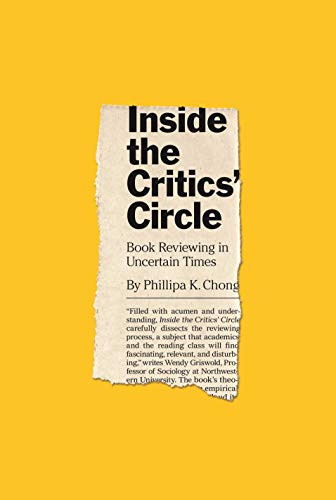What do you think?
Rate this book


An inside look at the politics of book reviewing, from the assignment and writing of reviews to why critics think we should listen to what they have to say
Taking readers behind the scenes in the world of fiction reviewing, Inside the Critics’ Circle explores the ways that critics evaluate books despite the inherent subjectivity involved, and the uncertainties of reviewing when seemingly anyone can be a reviewer. Drawing on interviews with critics from such venues as the New York Times, Los Angeles Times, and Washington Post, Phillipa Chong delves into the complexities of the review-writing process, including the considerations, values, and cultural and personal anxieties that shape what critics do.
Chong explores how critics are paired with review assignments, why they accept these time-consuming projects, how they view their own qualifications for reviewing certain books, and the criteria they employ when making literary judgments. She discovers that while their readers are of concern to reviewers, they are especially worried about authors on the receiving end of reviews. As these are most likely peers who will be returning similar favors in the future, critics’ fears and frustrations factor into their willingness or reluctance to write negative reviews.
At a time when traditional review opportunities are dwindling while other forms of reviewing thrive, book reviewing as a professional practice is being brought into question. Inside the Critics’ Circle offers readers a revealing look into critics’ responses to these massive transitions and how, through their efforts, literary values get made.
178 pages, Kindle Edition
Published January 14, 2020